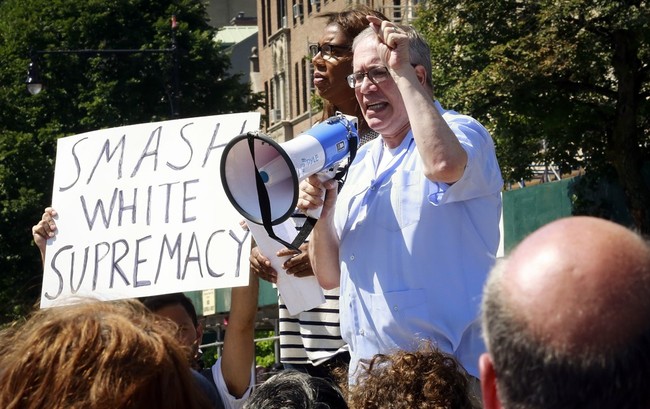I'm really fascinated by this question. Why is it that social surveys routinely show conservatives are more happy than progressives? Today Thomas Edsall has an opinion piece in the NY Times which looks at some of the research on this question. And what he finds is that there may in fact be a depressive aspect to modern progressivism, one that is being driven by identity politics and the spreading fixation on social justice.
Why would these two things be correlated? Edsall got a comment on that from a Notre Dame professor named Timothy Judge who argued it was about the left's tendency to create an external locus of control.
This makes immediate sense to me. If your worldview is focused on grand forces and trends (white supremacy, misogyny, racism, global warming) that are holding you back because of your unchangeable identity. And if you further believe those forces are intractable over your lifetime and beyond, there's not much reason for happiness. It's a worldview that seems bent toward depression.
Alternatively, if you tend to believe that problems that exist are more local or even internal in many cases then the chances of making changes that will benefit you and others is much higher. Having an internal, as opposed to an external, locus of control seems like a viewpoint designed to increase self-confidence.
The happiness gap has been with us for at least 50 years, and most research seeking to explain it has focused on conservatives. More recently, however, psychologists and other social scientists have begun to dig deeper into the underpinnings of liberal discontent — not only unhappiness, but also depression and other measures of dissatisfaction.
One of the findings emerging from this research is that the decline in happiness and in a sense of agency is concentrated among those on the left who stress matters of identity, social justice and the oppression of marginalized groups.
Why would these two things be correlated? Edsall got a comment on that from a Notre Dame professor named Timothy Judge who argued it was about the left's tendency to create an external locus of control.
I do share the perspective that a focus on status, hierarchies and institutions that reinforce privilege contributes to an external locus of control...
If our predominant focus in how we view the world is social inequities, status hierarchies, societal unfairness conferred by privilege, then everyone would agree that these things are not easy to fix, which means, in a sense, we must accept some unhappy premises: Life isn’t fair; outcomes are outside my control, often at the hands of bad, powerful actors; social change depends on collective action that may be conflictual; an individual may have limited power to control their own destiny, etc.
These are not happy thoughts because they cause me to view the world as inherently unfair, oppressive, conflictual, etc. It may or may not be right, but I would argue that these are in fact viewpoints of how we view the world, and our place in it, that would undermine our happiness.
This makes immediate sense to me. If your worldview is focused on grand forces and trends (white supremacy, misogyny, racism, global warming) that are holding you back because of your unchangeable identity. And if you further believe those forces are intractable over your lifetime and beyond, there's not much reason for happiness. It's a worldview that seems bent toward depression.
Alternatively, if you tend to believe that problems that exist are more local or even internal in many cases then the chances of making changes that will benefit you and others is much higher. Having an internal, as opposed to an external, locus of control seems like a viewpoint designed to increase self-confidence.

